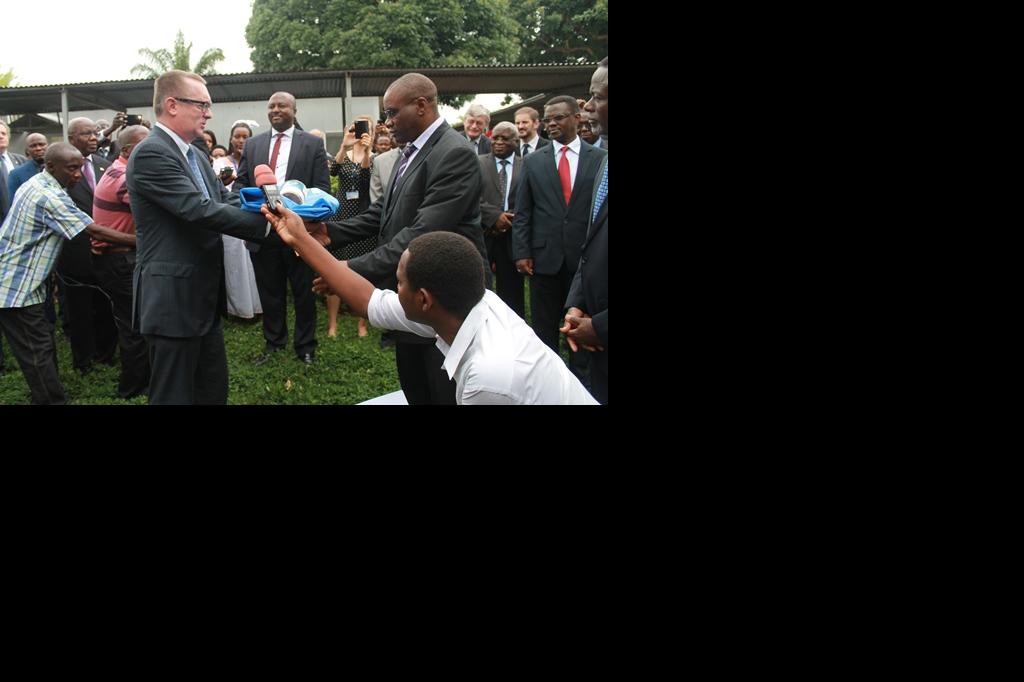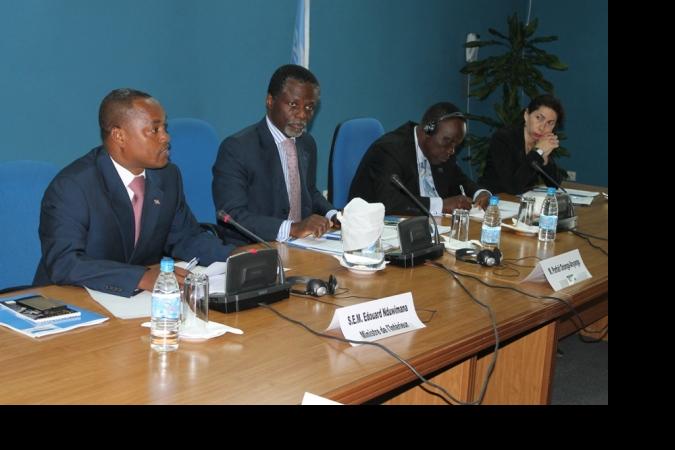Bujumbura, May 18, 2011_Burundi is making commendable efforts to consolidate its post-conflict peacebuilding process, the United Nations top official in the central African country told the Security Council today, calling on the international community to continue supporting its steps towards sustainable development.
"Throughout the transition, BNUB [UN Office in Burundi] has continued to carry out its core tasks in support of the consolidation of peace and democracy in Burundi," said Karin Landgren, the Special Representative of the Secretary-General for Burundi and Head of BNUB, briefing the Council.
"We continue to encourage efforts to promote inclusive political dialogue between the Government and the extra-parliamentary opposition. We are helping the Government strengthen its key institutions, supporting efforts to professionalize and enhance the capacity of security and defence forces," said Ms. Landgren.
The UN office was also working with civil society to promote the respect of human rights and prepare for the establishment of transitional justice mechanisms, she said.
Ms. Landgren, however voiced concern over frequent reports of extrajudicial killings, adding that BNUB had investigated and documented nine such cases between January and March this year, while several incidents that occurred last month are under probe.
The UN office documented 11 extrajudicial executions between August and November last year, she said, noting that the Government had set up a commission of inquiry last October to probe specific allegations made against security forces. The commission had, however, remained dormant until last month when authorities announced its revival.
"We encourage the Government and the commission to establish the facts and make actionable recommendations where violations were established," said Ms. Landgren.
She reported that since the Council's last meeting on Burundi five months ago, several developments had taken place in relation to transitional justice, human rights, and the conduct of political parties.
Last month, parliament adopted legislation on the functioning and organization of political parties, a process followed by a similar one for non-parliamentary opposition parties. An amendment to that law was made after the opposition expressed concern that it would be restrictive.
Ms. Landgren said the security situation remains "generally calm," but last month saw a spike in the number of violent incidents in Bujumbura Rural Province.
She said the Government was preparing its second Poverty Reduction Strategy Paper, which would incorporate key elements of the Strategic Framework for Peacebuilding and harmonize efforts in both peace consolidation and development planning.
She said Burundi was no longer self-sufficient in food production largely because 90 per cent of all families now lived on an average of half a hectare of eroded land. Corruption remained a major concern, Ms. Landgren said, pointing out that the Ministry of Good Governance had presented a broad-based national plan on good governance and the fight against graft, incorporating comments from the World Bank, the UN Development Programme (UNDP) and bilateral partners.
"An impartial and independent national human rights commission can strengthen Burundi's compliance with its international obligations and enhance the protection and promotion of human rights, thus promoting national security," she said.
On transitional justice, the Government is taking steps to set up relevant mechanisms following national consultations concluded last year. Earlier this month, a delegation led by the Minister for External Affairs outlined the Government's transitional justice strategy at a meeting with the UN High Commissioner for Human Rights, Navi Pillay. The Government intends to create a truth and reconciliation commission by next year, Ms. Landgren added.
Briefing to the Security Council on the situation in Burundi by the
Special Representative of the Secretary-General, Karin Landgren




